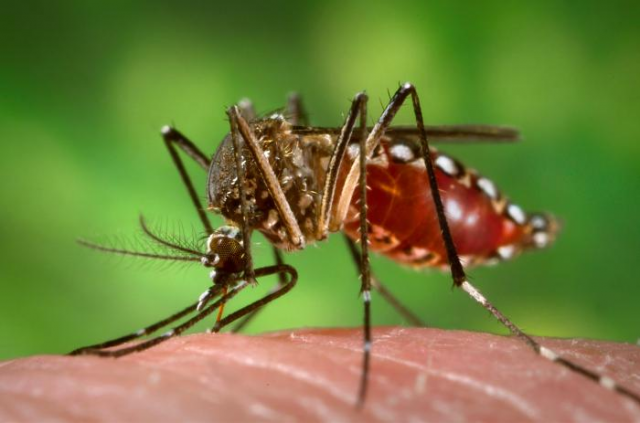CDC updates Zika virus guidelines for couples
American researchers “build a better mouse” to battle against Zika.

There are now more than 500 cases of Zika virus infection within the United states and its territories, including 54 in pregnant women.
Because of its impact that maternal Zika infection can have on the developing fetuses, and the confirmation that sexual transmission of the virus is possible, the Centers for Disease Control and Prevention (CDC) have updated guidelines for couples:
• For women who have been diagnosed with Zika virus or who have symptoms of Zika including fever, rash, joint pain or red eyes, to wait at least eight weeks after their symptoms appeared to get pregnant.
• For men who have been diagnosed with Zika virus or who have symptoms to wait at least six months to have unprotected sex.
• For men and women without symptoms of Zika virus to wait at least eight weeks after their possible exposure before trying to get pregnant in order to minimize risk.
Additionally, the agency recommends that men who have symptoms or confirmed Zika should consider using condoms or not having sex for at least six months after symptoms begin and men who simply traveled to an area with Zika (but did not develop symptoms) should consider protective measures for at least eight weeks after their return.
As more research is being conducted on Zika, some disturbing discoveries are being made. For example, scientists confirm a common type of mosquito may be a potential carrier.
The mosquito species Aedes aegypti has been identified as the main transmitter of Zika infections, which have been linked to thousands of birth defects as the virus spreads rapidly in Brazil and other countries in Latin America and the Caribbean.
But the scientists in Brazil announced on Wednesday that they were able to infect another species, Culex quinquefasciatus, with the virus in a laboratory, raising concerns that Zika could be carried by a species more prevalent than Aedes aegypti. They said much more research is needed to learn whether the Culex mosquitoes can transmit Zika infections.
In Brazil, Culex quinquefasciatus is 20 times more common than Aedes aegypti, the researchers said.
Additionally, new analysis shows that several major U.S. cities could become epicenters of Zika infection this summer.
An analysis published this month by the National Center for Atmospheric Research found that conditions favorable for a Zika outbreak could converge in late spring and summer, putting cities including Houston, Miami and Orlando at high risk for transmission. That’s based on factors that include climate, mosquito populations, air travel from Zika-affected counties and poverty.
A study earlier this year found that about 200 million Americans, more than 60 percent of the population, live in areas of the U.S. conducive to Zika spread.
The good news is that an innovative team of American researchers have literally built a better mouse to help in the fight.
U.S. scientists have identified a genetically modified strain of mice that develop Zika, an important tool needed for testing vaccines and medicines to treat the virus that is rapidly spreading across the Americas and the Caribbean.
…Normally, creating this kind of mouse model would take several months. But the urgency of the Zika outbreak called for rapid response, and the team put together the results in just three weeks, said Shannan Rossi, a [University of Texas Medical Branch] virologist who led the study.
There is a funding fight that began ahead of the Easter break, as Republican representatives wanted money for addressing the spread of Ebola repurposed for the fight against Zika.
“There is plenty of money in the pipeline right now; money that is not going to Ebola, that was already in the pipeline, that can go immediately to Zika,” House Speaker Paul Ryan, R-Wisc., told reporters this week.
Several Republicans on various funding committees have asked top health officials why money that was appropriated to spend on the waning Ebola epidemic could not be re-purposed to fight Zika.
Dr. Tom Frieden, director of the Centers for Disease control and Prevention, and Dr. Tony Fauci, director of the National Institute of Allergy and Infectious Diseases, both say that money is already spoken for.
Spoken for, but not spent. And American health should be priority, especially in light of the recent discoveries that have been made in the quest to understand Zika.
Donations tax deductible
to the full extent allowed by law.








Comments
Leslie, that photo makes me itch just looking at it. It creeps me out.
Given Obama’s insane sabotage of the US border, we have another idiom entering into the lexicon to join the most famous one courtesy of the Clinton’s.
Two guys talking:
Q: How’d your date with with Chelsea go?
A: Wild. First I got a lewinsky in the elevator, then we got into her place and zika’d all night.
We are just letting everything into this country.
Leslie, you forgot to put “Trump” in the headline of this article in order to attract commentary traffic.
May I suggest something along the lines of what the professor and Kemberly are doing, such as:
CDC updates Zika virus guidelines for couples. No information yet on whether Trump is a carrier.